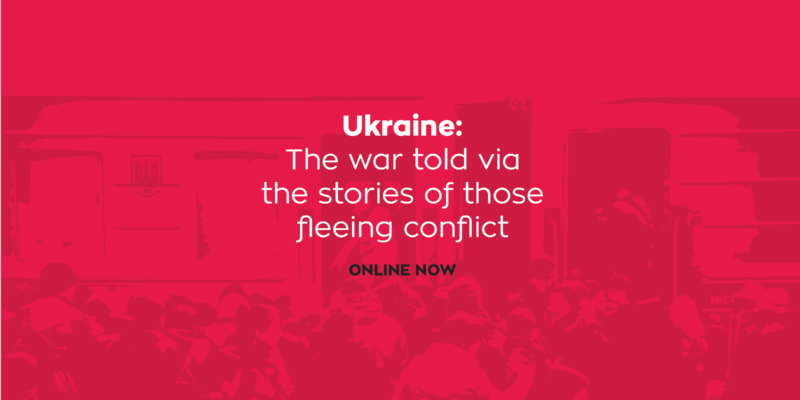On February 24, actions leading to the destruction of the lives of millions of Ukrainian citizens were commenced. On that day, the Russian army began its invasion of the country, bombing and invading the cities.
Millions of people, particularly women, children and the elderly, have had to collect the few things they could and set out for the borders to leave their country. Leaving behind their lives, desires, their dreams and the people they loved.
In the first 40 days, according to UNHCR data, more than 4 million people have fled the country or approximately 10% of the population. Most of them have reached Poland where, so far, 2.47 million people have found shelter. The next most commonly reached country is Romania, which is currently hosting 15.3% of displaced refugees.
Poland and Romania are followed by Moldova (the number of people crossing the border towards Transnistria has not been counted), Hungary and Slovakia.
During this time, Italy has been the destination of over 83,000 displaced people from Poland. Among these, 90% were women (42,879) and children (31,670).
The European Commission responded to these migratory flows by activating the Temporary Protection Directive to guarantee immediate protection, derogating from normal asylum procedures, which the huge flow in a short period of time could have put at risk.
There has been an extraordinary mobilisation which, however, has also raised questions about the overall management of migratory flows across Europe. Many have pointed out that there has been an activism for Ukrainian refugees which was missing in response to similar crises involving citizens of other countries. One of those pointing this out was Elio Vito, a Forza Italia deputy who tweeted on April 3: “67,000 migrants arrived in Italy in 2021. 81,000 Ukrainian refugees arrived in a month, for whom there is the right, proper welcome. Italy therefore can and knows how to host [refugees]. Crying out that the [prior] landings are a scandal is, therefore, the worst type of propaganda, it’s inhumanity”.
Furthermore, neighbouring countries that are most exposed to flows, in some cases have treated non-Ukrainian citizens escaping Ukraine, mainly from Africa and South Asia, differently to other refugees from Ukraine.
Through Open Migration, we have told, from the very first moment, of all these incidents. We did this thanks to reports and insights brought to light by our contributors who, at the forefront, collected voices, stories from the borders or from refugees who arrived in the countries that welcomed them, and followed and evaluated the political responses offered by European and Italian institutions.
We have decided to create a collection of stories in this instant-book, to offer a broad picture of what is happening, what the war means, and the reasons that in Ukraine, as in other parts of the world, push people to run from their nation homes. We also reflect on how much the “willingness to welcome” counts. Our aim is to attentively follow the facts today and build a shared memory for tomorrow that helps us avoid mistakes made in the past.
READ THE INSTANT-BOOK “UKRAINE: THE WAR TOLD VIA THE STORIES OF THOSE FLEEING CONFLICT“









